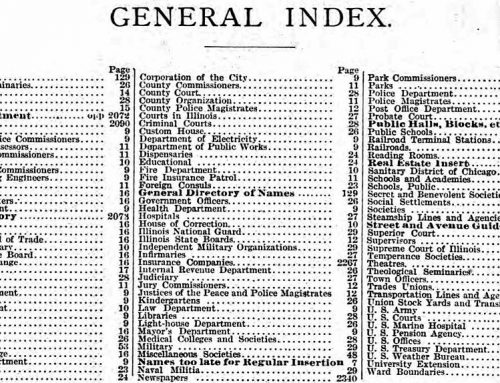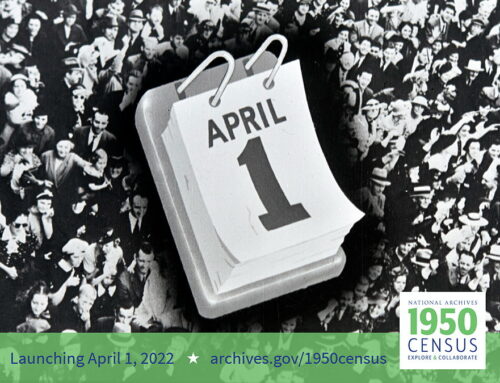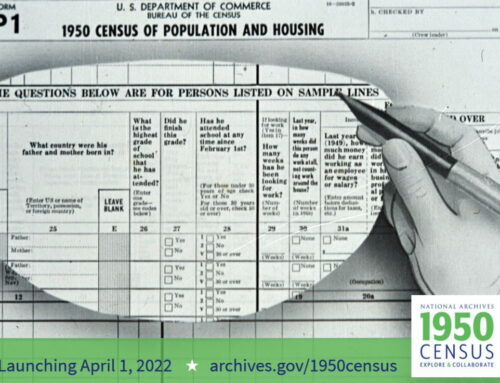A quick post today on how archivists describe records,
which can help your genealogy research.
We all know professions have their own lingo, so cracking the code that archivists use can make your searches for family history records more effective. And the best tool to do that is a free download of “A Glossary of Archival and Records Terminology,” published by the Society of American archivists and available as a free download here.
As editor Richard Pearce-Moses notes, this list of definitions is descriptive, which is very helpful for archival terms that may be used one way in one repository and another way in a different archives.
Many terms have meanings that differ between communities of interest or disciplines; ‘record’ has senses that are specific to cataloging, to computing, and to law. Even within the community of archivists, meanings vary. For example, some archivists carefully distinguish archives from personal papers, but others do not. Some of these differences are significant, others are slight. The variations underscore a lack of professional consensus. As a result, the glossary points out horizons of understanding, where key concepts are being reconsidered or established. A single definition for a term could easily confuse a reader who is confronted with a text that uses that term with a very different meaning.
 Just a few terms from this glossary used by archivists that genealogists will find useful:
Just a few terms from this glossary used by archivists that genealogists will find useful:
- ephemera, pl. n. (ephemeron, sing.)Materials, usually printed documents, created for a specific, limited purpose, and generally designed to be discarded after use. Notes: Examples of ephemera include advertisements, tickets, brochures, and receipts. A repository may collect ephemera as examples or specimens. Individuals often collect ephemera as mementos or souvenirs because of their association with some person, event, or subject; personal collections of ephemera are often kept in scrapbooks.
- family papers, n.Records created or collected by a group of individuals who are closely related by ancestry and relating to their personal and private affairs.RT: business records, manuscript collection, personal papers Notes: Family papers may span generations or may pertain only to an immediate family group. Papers that are predominantly associated with a single individual are often described as personal papers, even if they contain materials from other family members. Family papers, especially those created before the mid-20th century, often contain considerable content relating to the business affairs of family members, although the records are not generally characterized as business records.
- manuscript collection, n.A collection of personal or family papers.
RT: collection, family papers, fonds, papers Notes: Although manuscript literally means handwritten, ‘manuscript collection’ is often used to include collections of mixed media in which unpublished materials predominate. They may also include typescripts, photographs, diaries, scrapbooks, news clippings, and printed works. †294 (National Library of Australia): Although the literal meaning of manuscript is ‘handwritten,’ the Library’s manuscript collections cover all kinds of unpublished written records and many contain published and pictorial records as well. The kinds of records are extremely diverse: letters, diaries, notebooks, speeches, lectures, drafts of books and articles, research or reference files, cutting books, photographs, drawings, minute books, agenda papers, logbooks, financial records, maps and plans.
Read more Sassy Jane posts on genealogy search strategies here.





Leave a Reply